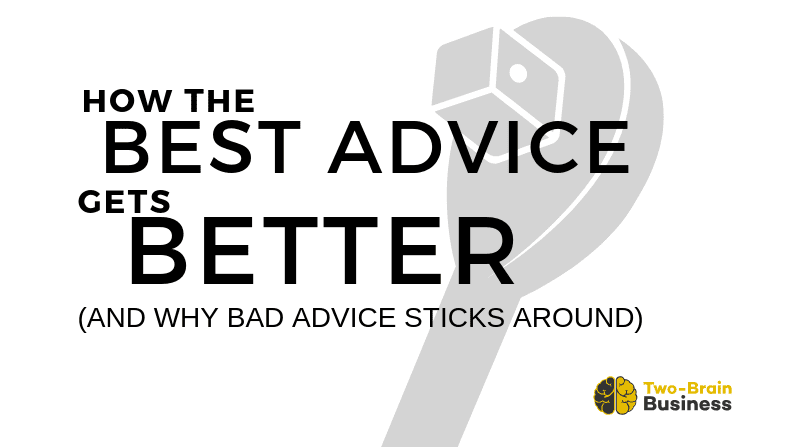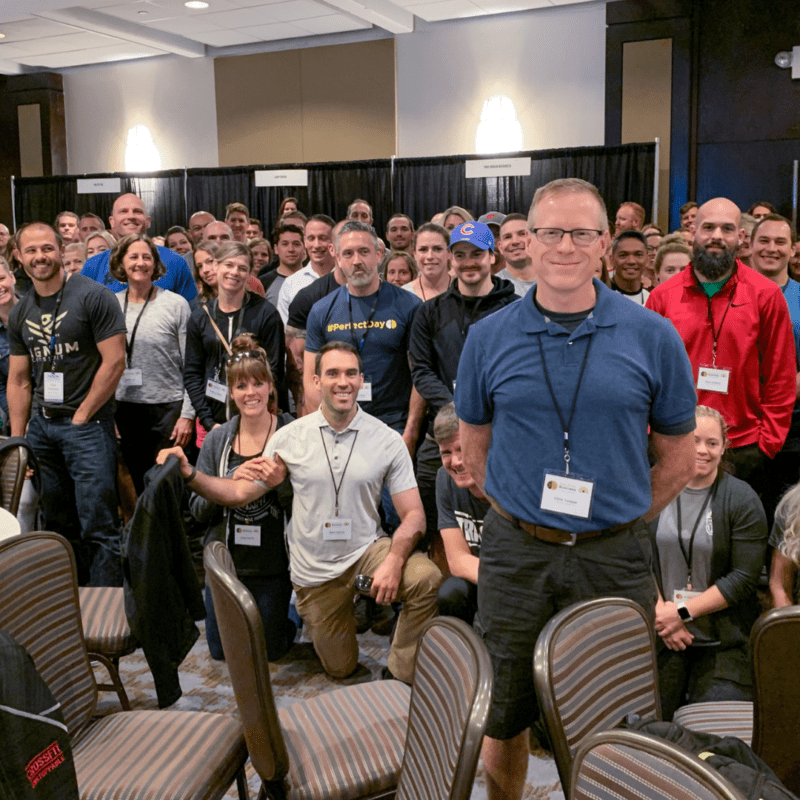Two-Brain Business is the bestselling fitness business book in history. And some days, I think about pulling it off the shelves.
There are over 120 actionable steps you can take in that book. Dozens of people have told me “it saved my business!”. Thousands have read it, and then booked a free call with a Two-Brain certified mentor. Hundreds have leveled up in our mentorship program called the Incubator.
But there are three things I wish I could update in that book. Because the best advice evolves over time. Here’s how:
Gyms who seek mentorship from Two-Brain business are taught to track the metrics that matter. This helps gym owners see what’s working, and what’s not. Then they can make changes and grow, or double down on the things getting them results. And sometimes, their results are better than mine ever were.
Gasp!
When one gym owner raised her rates without losing a single client, we tested her strategy in a few other gyms. The results–measured by data–were amazing, and so we replaced my strategy with hers. A few months later, when another gym owner made one small change that improved his retention–measured by data–we upgraded again.
In fact, if you went through the Incubator four years ago, and went through it again now, you’d probably see a LOT of difference. That’s because the best advice evolves.
But if you’re not tracking success, it can’t evolve. Because without data, everything is a guess.
It’s pretty hard for a new idea to make the cut into the Two-Brain Incubator now. That’s because the actions we take in the Incubator are time-tested and proven. But we’re always looking at the outliers. For example, one gym owner just finished the Incubator with an ARM of $495 (that’s an average client revenue of $495 per month). Another gym owner just sold $50,000 in personal training in one month. Are these sustainable? Are they good ideas? We’ll soon find out, because we’ll be testing and tracking. And if they turn out to be better than what we currently teach, then we’ll share them with every gym owner in the Two-Brain family.
The filter here is data. Great ideas must prove themselves. But when they do, we upgrade what we teach. Seth Godin calls it the Ratchet Effect. And data is the fulcrum that only lets the ratchet move forward.
Without this solid foundation of numbers, gym owners are building on shifting sand.
But bad ideas stick around because they’re attached to sticky stories.
“My gym has 250 members” is a sticky story because it sounds like success. But many gyms–even some with 500 members–aren’t profitable enough to pay their owners.
“Just care about people and you’ll grow” is a sticky story because it lets gym owners off the hook for doing the hard stuff they don’t like (sales, bookkeeping and tough conversations.) But being a good coach doesn’t make you a good–or a bad–business owner. They’re different.
“That’s not how we did it in 2005” is still accepted as a good reason to do something, because nostalgia is the stickiest story of all.
“A lie gets halfway around the world before truth puts on its boots.” Winston Churchill is credited with that heuristic, but it’s been around since at least 1787. We want to believe Churchill said it, because we love Churchill quotes. And it’s okay to believe sticky stories–at least until people are counting on you to be right. When being right affects other people’s money, you should stick with data instead of myths.

